i would definately not advise to use cronjobs for this.
cronjobs are a good thing and very useful and easy for many purposes, but as you describe your needs, i think they can produce more complications than they do good. here are some things to consider:
what happens if jobs overlap? one takes longer to execute than one minute? are there any shared resources/deadlocks/tempfiles? - the most common method is to use a lock file, and stop the execution if its occupied right at the start of the program. but the program also has to look for further jobs right before it completes. - this however can also get complicated on windows machines because they AFAIK don't support write locks out of the box
cronjobs are a pain in the ass to maintain. if you want to monitor them you have to implement additional logic like a check when the program last ran. this however can get difficult if your program should run only on demand. the best way would be some sort of "job completed" field in the database or delete rows that have been processed.
on most unix based systems cronjobs are pretty stable now, but there are a lot of situatinos where you can break your cronjob system. most of them are based on human error. for example a sysadmin not exiting the crontab editor properly in edit mode can cause all cronjobs to be deleted. a lot of companies also have no proper monitoring system for the reasons stated above and notice as soon as their services experience problems. at this point often nobody has written down/put under version control which cronjobs should run and wild guessing and reconstruction work begins.
cronjob maintaince can be further complicated when external tools are used and the environment is not a native unix system. sysadmins have to gain knowledge of more programs and they can have potential errors.
i honestly think just a small script that you start from the console and let open is just fine.
<?php
while(true) {
$job = fetch_from_db();
if(!$job) {
sleep(10)
} else {
$job->process();
}
}
you can also touch a file (modify modification timestamp) in every loop, and you can write a nagios script that checks for that timestamp getting out of date so you know that your job is still running...
if you want it to start up with the system i recommend a deamon.
ps: in the company i work there is a lot of background activity for our website (crawling, update processes, calculations etc...) and the cronjobs were a real mess when i started there. their were spread over different servers responsible for different tasks. databases were accessed wildly accross the internet. a ton of nfs filesytems, samba shares etc were in place to share resouces. the place was full of single points of failures, bottlenecks and something constantly broke. there were so many technologies involved that it was very difficult to maintain and when something didnt work it needed hours of tracking down the problem and another hour of what that part even was supposed to do.
now we have one unified update program that is responsible for literally everyhing, it runs on several servers and they have a config file that defines the jobs to run. eveyrthing gets dispatched from one parent process doing an infinite loop. its easy to monitor, customice, synchronice and everything runs smoothly. it is redundant, it is syncrhonized and the granularity is fine. so it runs parallel and we can scale up to as many servers as we like.
i really suggest to sit down for enough time and think about everything as a whole and get a picture of the complete system. then invest the time and effort to implement a solution that will serve fine in future and doesnt spread tons of different programs throughout your system.
pps:
i read a lot about the minimum interaval of 1/5 minutes for cronjobs/tasks. you can easily work around that with an arbitrary script that takes over that interval:
// run every 5 minutes = 300 secs
// desired interval: 30 secs
$runs = 300/30; // be aware that the parent interval needs to be a multiple of the desired interval
for($i=0;$i<$runs;$i++) {
$start = time();
system('myscript.php');
sleep(300/10-time()+$start); // compensate the time that the script needed to run. be aware that you have to implement some logic to deal with cases where the script takes longer to run than your interavl - technique and problem described above
}
